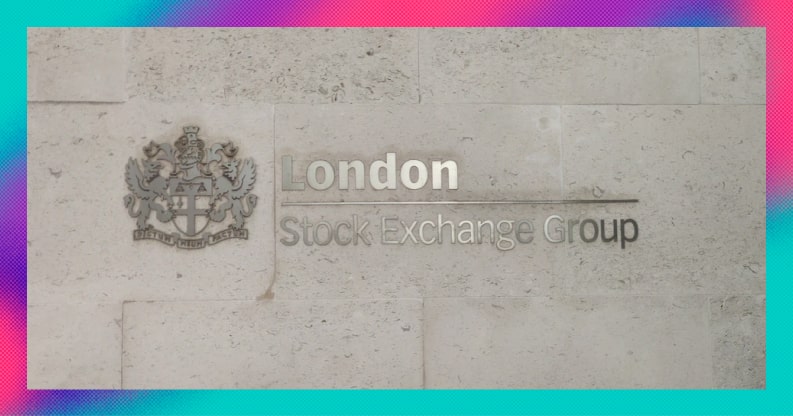Trying to decipher the relationship between inflation and the stock market can feel puzzling at the best of times.
Unfortunately, investing never follows a strict formula that you can implement into your strategy to just rinse and repeat.
That being said, we’ve experienced periods of inflation plenty of times before, and some patterns do emerge.
Although there’s no perfect blueprint for beating inflation with your investments, there are steps you can take to better understand how this kind of economic environment will affect your portfolio of stocks and shares.
There are certain assets and methods you can use to hedge against the impact of inflation. Using these strategies is not a guaranteed way to completely inflation-proof your whole portfolio, but it’s a step in the right direction.
Understanding how inflation works, and the ways it affects investment markets will give you an edge when it comes to picking out suitable stocks.
An inflation overview
Let’s take things back a step and explore the foundations of what inflation actually is.
Getting a good grip on the way inflation works will allow you to better understand how it impacts the stock market. And more importantly, the potential ways it can affect your own portfolio of investments.
Arming yourself with this knowledge is going to give you the best shot at being able to find inflation-beating investments.
What is inflation?
In short, inflation is the rise in the prices of goods and services over time. Which in turn, leads to a decrease in the purchasing power of money.
When you hear people talking about a currency losing value (over time as opposed to in the currency markets) this is what they’re referring to. For example, it costs you more to buy something today than it did yesterday.
It’s the reason your gran might give you 50p and tell you not to buy the whole corner shop. Because in her day you probably could.
How quickly prices are rising is what’s known as the rate of inflation.
Here in the UK, the two main measures we use to calculate the level of inflation are the consumer price index (CPI) and the retail price index (RPI).
Each index contains a basket of goods and services and gives us an easy way to measure price changes across a range of things we spend money on.
In 2022, things like meat-free sausages, sports bras and antibacterial surface wipes became popular enough purchases to make it into the basket. They replaced less popular items like doughnuts, men’s suits and coal.
The result is a broadly representative sample of what we’re buying and how those average prices change from year to year.
What causes inflation?
There can be many catalysts that result in inflation. Some of the most common causes include the different situations explained below.
Cost-push inflation is when raw materials or production costs go up, this can lead to businesses raising prices. For example, when the price of oil rises, this has a knock-on effect and the impact is felt in multiple industries.
Demand-pull inflation involves a surge in demand that is followed by an increase in prices if consumers are willing to pay more. This was evident during the recent semiconductor shortage. Car manufacturers weren’t able to build enough new cars, but people were so desperate for petrol-guzzling machines that demand caused the price of second hand cars to shoot up.
Wage-push inflation happens when increasing wages result in higher costs for businesses, which then get passed on to you. Labour shortages and demands for certain skills can lead to higher salaries to keep employees, or attract new workers.
Fiscal policy from the government can create incentives for you or businesses to spend more money. Perhaps by reducing taxes, or spending on big infrastructure projects to stimulate the economy.
Monetary policy from The Bank of England might reduce interest rates. A step that provides you with more disposable income and less incentive to save. It also allows companies and banks to borrow more cheaply.
Sometimes with inflation, it’s a bit of a ‘chicken or the egg’ scenario. There are often multiple forces moving in unison, making it hard to tell what came first, and what’s causing what.
What are the effects of inflation?
Inflation means that things are getting more expensive. The main effect is pretty straightforward, rising prices.
A fancy term for this is the ‘erosion of purchasing power’ by weakening a currency. The money in your pocket doesn’t change but what it can actually buy decreases.
So, it encourages people to spend today, because things may cost more tomorrow. This leads to somewhat of a spiral effect and a self-fulling prophecy. One that leads to more inflation.
Inflation can lower debt repayments in some situations. This is because the cost of the debt becomes less in real terms.
But, the flip side is that central banks often step in and raise interest rates, making it more expensive to borrow. It’s these sorts of contradictions that make it difficult to manage inflation.
The discouragement of saving can also lead to more investing interest as people look for useful ways to hedge against inflation, or even profit from it.
Saving or investing during inflation
Many choose to invest during periods of high inflation due to the fact that rising prices guarantee a loss in value for idle cash.
Now, there is a scenario where interest rates go significantly higher, and this could lead to more enticing interest rates for savers.
But, the situation we’re in right now with historically low interest rates, means there’s not much incentive for savers because the saving rates on offer are nowhere near the current level of inflation.
So, in a bid to preserve value, investing becomes a more popular course of action.
The caveat here is risk. With cash, there is the risk of it losing purchasing power but there is a relative certainty of it being there tomorrow. With investing, the natural volatility of the market and the chance of loss means comparing cash to stocks isn’t like for like.
Is inflation good or bad?
It’s both. Trying to keep a healthy level of inflation is an impressive balancing act. This is because you need some inflation in a healthy economy, but you don’t want too much.
Letting it run out of control can lead to plenty of nasty repercussions.
Getting a perfect balance is sometimes known as a ‘Goldilocks economy’. This is when there’s enough growth to prevent a recession, but not too much growth that allows inflation to run wild.
Not too hot, not too cold, just right.
Obviously maintaining the right balance in the economy is more complex than warming a bowl of porridge, but you get the idea.
How much has inflation increased in 2022?
According to the ONS, the CPI rose by 9.9% in the 12 months to August 2022. The rate was 8.2% in the year up to September over in the US, with both measures sitting around 40-year highs.
Why is inflation so high in the UK?
Unfortunately, we’re being hit by a barrage of inflationary pressures from all angles. In the wake of the coronavirus pandemic, the UK is having to deal with:
- Global supply chain squeezes, which mean lower levels of production and more expensive materials.
- Rising oil and gas costs, further fuelled by the conflict in Ukraine.
- Staff shortages and higher household costs, creating demands for higher pay.
- House prices tearing off into the stratosphere.
- Continuing lockdowns in China, affecting a key source of production for goods.
What is the connection between inflation and interest rates?
When inflation is running high, this tends to lead to a response from central banks. To dampen growth, interest rates will usually go up.
The idea is that this will put the brakes on the economy, because it discourages spending and encourages saving.
Along with this, it also makes borrowing more expensive for both businesses and consumers.
How does inflation impact the stock market?
Now that we’ve covered the nuts and bolts of inflation, we can explore how this situation impacts the investing landscape.
Why is inflation bad for stocks?
It can be bad for a number of reasons.
First, if a firm has to spend more on its raw materials, inflation means that the future returns of a stock will be worth less. So, investors adjust their expectations, resulting in a drop in the share price.
Second, the response of raising interest rates makes it more expensive for companies to borrow money. This added cost can make it more difficult to fund growth and further expansion.
Rising interest rates also increase something called the ‘discount rate’. This can make a difference when analysts whip out their calculators and start making projections around stock prices.
When interest rates rise, analysts use a larger discount rate to calculate what investors should be paying now, for a slice of future profits. Dividing those future expectations by a bigger number gives a lower figure now. That feeds into what the market thinks we should be paying in terms of share prices.
Increasing business costs also means they need to earn more to achieve the same margin of profit. And, when a company has higher debt costs, estimates for future cash flows will drop, which can directly lower share price.
Other rising costs associated with inflation such as higher labour or material costs do the same thing.
If it costs more to run the business, this leads to lower margins and less profit. This can affect the ability of a stock to pay dividends or engage in share buybacks. All of which can put downward pressure on a firm’s share price.
Do stocks go up or down with inflation?
Both. Some stocks and shares will get hurt by high levels of inflation. But, other investments can prosper in this environment.
This is usually because some companies are able to pass on higher costs. This is providing people need to buy their goods, or are still willing to pay for their services at a higher price.
So, investing sentiment can shift when inflation occurs. Moving away from stocks promising future growth and instead, looking for firms that can make money right now.
How to hedge against inflation
It’s not all doom and gloom. There can be ways to hedge against inflation, using various methods to try and protect your investments. The idea is to attempt to shield your portfolio in the best way possible.
Inflation hedge strategies
There’s no silver bullet when attempting to hedge or inflation-proof your investment portfolio from the various effects.
The best you can do is apply lessons learnt during similar situations and look for sensible ways to hedge your portfolio. Popular strategies that have fared well in the past include:
- Making sure you’re not holding more cash than you need to.
- Finding stocks and shares with pricing power.
- Picking out firms with low levels of debt, or healthy types of debt.
- Investing in stable businesses that can maintain profit levels.
- Looking for cyclical stocks well-suited to offsetting inflation. For some this means investing in commodities.
- Diversifying your investments globally and using lots of different assets including property.
Although, it's important to point out that past performance doesn’t dictate future results and, while some of these strategies may work in certain periods, there’s no guarantee they’ll be consistent over the long term.
Are equities a good inflation hedge?
Yes, they can be. Stocks that are generating money and providing some level of return today can be better than holding cash that’s definitely losing value. There’s a clear distinction here though, in that investing involves market risk whereas holding cash doesn’t.
Making the most of your share dealing account to seek out solid equity investments is a good tactic to consider.
But, not all equity investments will prosper or succeed in generating returns or profit when inflation strikes.
Popular sectors to invest in during inflation
There’s no single best way to combat inflation. However, there are certain sectors and stocks that investors do turn to during situations where prices are rising rapidly:
- Energy and utilities
- Healthcare
- Consumer staples
- Real estate and property investments like REIT stocks
- Equity-based commodity ETFs
In these sectors, investors are usually trying to gain exposure to stocks that can deal with inflationary pressures, or those that can actively benefit from it.
If a well-loved consumer brand can pass on price rises to loyal consumers without losing them, it can keep its margins (and shareholders) happy. And if a gold miner can take advantage of a flight to so-called safe haven assets like gold, which often happens during inflationary periods, they can increase profits.
Inflation's impact on tech stocks
Because tech stocks tend to trade at high growth multiples, these investments usually suffer during periods of inflation.
This happens due to the fact that future returns will be worth less in real terms. So, the stock needs to earn much more to satisfy the same growth projections.
The previously mentioned issue of higher discount rates due to rising interest rates is also a big factor for private tech start-ups and public companies for two reasons:
- Valuations can drop as the present value of future cash flows decreases.
- It costs more for tech stocks to borrow the money they need to grow and the estimated amount of future cash flows also drops.
Rising interest rates due to inflation can make tech stocks less risk-worthy and more expensive for them to borrow money, which can further hamstring potential growth.
Commodities as an inflation hedge
This area is always popular among those searching for the best ways to hedge against inflation.
Two of the most popular and accessible commodity options to consider are gold and silver.
Gold
Because the price of gold isn’t linked to any currency, a devalued currency can make it more expensive to buy the same amount of gold.
So, investors can get paid more cash for any gold they own. That’s the idea anyway, but things don’t always pan out so perfectly.
The actual relationship between gold and inflation isn’t as clear cut as you might think. Some data shows that gold only performs as a solid inflation hedge when measured over at least 100 years. A long-term mindset is great, but you’re not immortal.
Silver
It’s a similar story with silver. One advantage silver has over gold is that it’s used in many more real-world situations like manufacturing.
It’s a precious metal that also has some practical use. Like gold, there’s a degree of separation between its price movements and a currency such as the pound or the dollar.
One big drawback from directly investing in precious metals is also a lack of income. The materials do not actually generate anything. So, an alternative to consider is mining companies.
Investing in miners means your returns aren’t solely reliant on price performance of the underlying asset. It provides a more managed approach to the sector that can allow you to benefit more from the price cycles.
Property as an inflation hedge
If your home goes up in value, this isn’t necessarily much use to you. Because, unless you plan on selling your house, you won’t realise any price gains.
Also, if you do sell and plan to buy elsewhere, you’ll likely find house prices have moved in lockstep. So, you’d have to pay more for another house to move into anyway, leaving you no better off.
Luckily, there are ways to invest in property without having to own and live in the home yourself.
One of the most popular options is using a Real Estate Investment Trust or REIT. These stocks have a tax structure which means that 90% of profits must be paid out to investors as dividends.
This can be a useful way to receive an immediate income from an investment property that’s generating cash. And, you don’t have to go through the hassle of becoming a landlord yourself.
However, most properties owned by REITs tend to be commercial instead of residential. This means that prices can move separately to the residential market, with different cause-and-effect influences. But, with a REIT you get more liquidity with your property ownership, and extra diversification because your funds can be invested across multiple buildings.
Bitcoin as a hedge against inflation
An initial premise of Bitcoin was that the blockchain technology allowed it to operate outside of normal fiat currencies.
The idea was that it would work in a similar way to a commodity investment, but one that was purely digital. There’s a fixed supply of Bitcoin and it becomes more difficult to mine over time, making it a deflationary asset. Because, with a finite amount of Bitcoin ever available, if demand steadily increases but the available supply stays flat, in theory this should increase the price over time. Of course, this presumes demand will go up.
However, Bitcoin has yet to be properly tested as an inflation hedge because it was only created in 2009. We’ve seen limited levels of inflation since then and other connections are hard to judge because Bitcoin’s correlation with tech stocks is like an on-again, off-again relationship.
On top of this, in the current period of high inflation, the Bitcoin price has been on a steady decline. Only time will tell if it ever fulfils its promise of becoming ‘digital gold’ or a proper hedge against inflation.
Inflation stocks
This was touched on earlier, but it’s worth delving a bit deeper into the types of stocks that are a popular choice for investors looking to fend off the effects of inflation.
Cyclical stocks for inflation
Cyclical stocks tend to have business models that rely on economic cycles, meaning a relationship to the boom and bust nature of an expansion followed by a recession.
Although these stocks tend to perform well during a strong market, some are well-suited to rising prices and inflation because their business models allow them to pass on higher costs to consumers.
Here are some examples of cyclical stock sectors that tend to capture the attention of investors along with a popular share from the Freetrade platform falling under each category:
- Mining and metals - Rio Tinto (Rio)
- Banks - Lloyd Bank (LLOY)
- Air transport - Boeing (BA)
- Car manufacturers - Tesla (TSLA)
- Construction firms - Taylor Wimpey (TW)
- Fitness and sports equipment - Peloton Interactive (PTON)
Keep in mind that the examples above are just for illustration purposes and not a recommendation to invest in those particular stocks.
Value stocks
This is another area that investors turn to during times of inflation.
A value stock tends to trade at a lower price relative to its fundamental value. That could be because investors figure it’s past its best and is on its way out, or it could be it’s simply overlooked and unloved unfairly at the moment.
The reason that investing in value stocks becomes more popular during periods of high inflation is because valuations are based on current earnings, rather than future earnings.
Future earnings for growth stocks become worth less, but current earnings become more valuable.
Value stocks can be worth exploring as a potential hedge against inflation in the immediate future.
However, learning how to value stocks isn’t an exact science, and it can be harder to figure out the true value of some companies compared to others.
So, if you’re ever unsure about the suitability of an investment, make sure you speak with a financial adviser.
REIT stocks
Investing in property can be a good way to keep your money working throughout periods of inflation.
REITs in particular provide some interesting opportunities for investors. This is because a large number of REITs focus on areas such as:
- Apartment buildings
- Offices
- Data centres
- Warehouses
- Infrastructure
Rent in these types of properties tends to rise in line with increasing prices. This can allow REITs to reward investors with dividend income that keeps pace with inflation.
A popular example from the Freetrade stock universe within this area is the Tritax Big Box REIT (BBOX). It’s a REIT that manages a wide range of logistics facilities across the UK, using long-term leases to allow a strong commitment towards dividend policies.
Of course, there are plenty of other considerations you need to make when looking for shares to invest in. It’s important to think about how certain stocks fit into your overall strategy and if an investment aligns with your own personal risk appetite.
ETFs as an inflation hedge
Certain exchange-traded funds, or ETFs, can also be a useful area to explore in an inflationary environment.
This isn’t to say that all ETFs make a good inflation hedge because each ETF investment will focus on something specific.
There are ETFs that cover sectors mentioned throughout this guide. Some of these can be worth having a deeper dive into as a potential hedge to inflation-proof your portfolio.
Even if you choose to passively invest in a broad market ETF covering a popular index, this is going to give you some exposure to stocks and shares that could beat inflation.
On the other hand, a large index may also include plenty of businesses that are poised to perform poorly whilst prices are rising.
So, you’ll have to balance these two sides against each other. Then, decide whether to go for a broadly diversified investing approach. Or, try to hone in on particular stock market sectors with an ETF investment.
Finding the best ETFs for 2022 and beyond will depend on what you’re hoping to achieve from your investments. It’s worth thinking about these investments as a long-term option.
Don’t just consider an investment that could perform well over the next year. Try and seek out stocks and shares that can perform under a number of different scenarios.
Can you profit from inflation?
This is entirely possible. But it’s important to keep in mind that there’s no single correct answer for successfully beating inflation using stock market investments.
Your investing goal might be to preserve the value of your portfolio, in which case you may not want to take on much risk. But, with the level of inflation so high, accepting a degree of risk will be the only way to try and match or outpace it.
Inflation is a natural part of the economy and shouldn’t create cause for despair.
There’s no way to make your investment portfolio bulletproof. But, a useful tactic is to make the most of the research and resources at your disposal.
This way you’ll have a better idea of what to expect within the stock market when inflation strikes. Hopefully allowing you to factor in the effects into your long-term investing strategy.

Build your financial knowledge and be in a better position to grow your wealth. We offer a wide range of financial content and guides to help you get the insight you need. For example, learn how to invest in stocks if you are a beginner, how to make the most of your savings with ISA rules or how much you need to save for retirement.






















